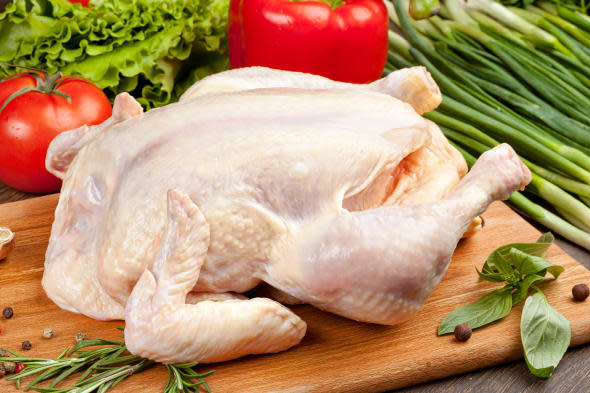Are supermarkets doing enough to stamp out dangerous bacteria in chicken?

The Food Standards Agency has warned that 79% of raw chicken on sale in British supermarkets is contaminated with campylobacter: the bacteria that causes most food poisoning. Levels are dangerously high in almost one in five of the chickens, and the FSA is calling on supermarkets to reduce this to one in ten by the end of the year. Yesterday one official claimed that most of the large supermarkets weren't co-operating fully with its campaign - a charge the supermarkets deny.
According to The Daily Mail, one board member from the agency said that only Marks & Spencer was providing regular updates on its plans and progress in tackling the bug. Asda, Tesco, Sainsbury's, Morrisons, Waitrose and the Co-op were said to have 'pushed back' against providing information, and were unhappy about the FSA publishing information about bacteria in chickens.
%VIRTUAL-ArticleSidebar-shopping-guide%
However, the claims were denied by the British Retail Consortium. Andrew Opie told the paper that officials from the FSA were regularly meeting retailers through the Acting on Campylobacter Together campaign, and sharing details of pilot projects to tackle the problem. The Co-op said it met the FSA last month to discuss its action plan, and all the other stores insisted that they were co-operating fully.
What can you do?
It's difficult to know where this disagreement has originated. But even with the full co-operation of all the supermarkets, and a wholehearted campaign to cut down on the bacteria on chickens, the goal is to reduce the levels of bacteria rather than wipe it out - so that even then one in ten chickens will be contaminated.
It means that we need to take steps to protect ourselves. It's essential to store raw chicken safely by covering it and placing it on the bottom shelf of the fridge, where it cannot drip onto food below. It's also vital to wash your hands after touching the chicken.
The official advice is to avoid washing the chicken before you cook it - which can splash the bacteria over kitchen surfaces, your hands and your clothes. After preparing raw chicken, however, it's important to thoroughly wash and clean all utensils, chopping boards and surfaces, and wash your hands with soap and warm water. This helps avoid cross contamination with other food.
Finally, make sure the chicken is fully cooked and steaming hot all the way through. The best way to check is to cut into the thickest part of the meat and check it is steaming hot with no pink meat, and that the juices run clear.
Food and drink on AOL Money
Easter supermarket shop: Asda and Aldi in battle to be cheapest
McDonald's launches fashion line
Campaigners call for plain packaging and health warnings on 'junk' food




